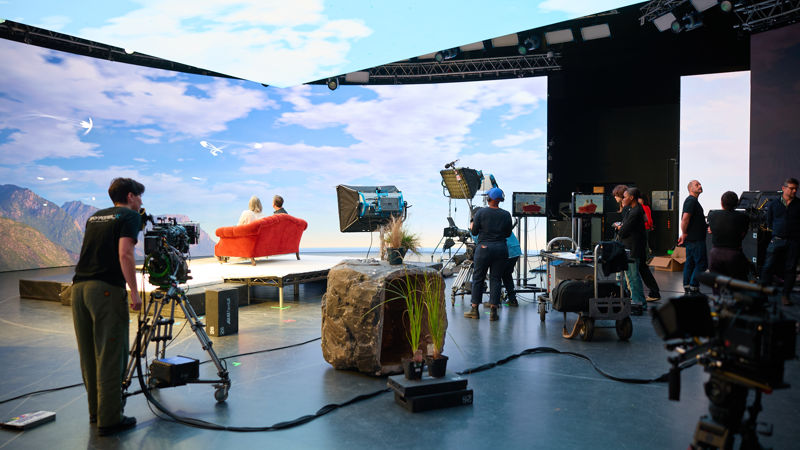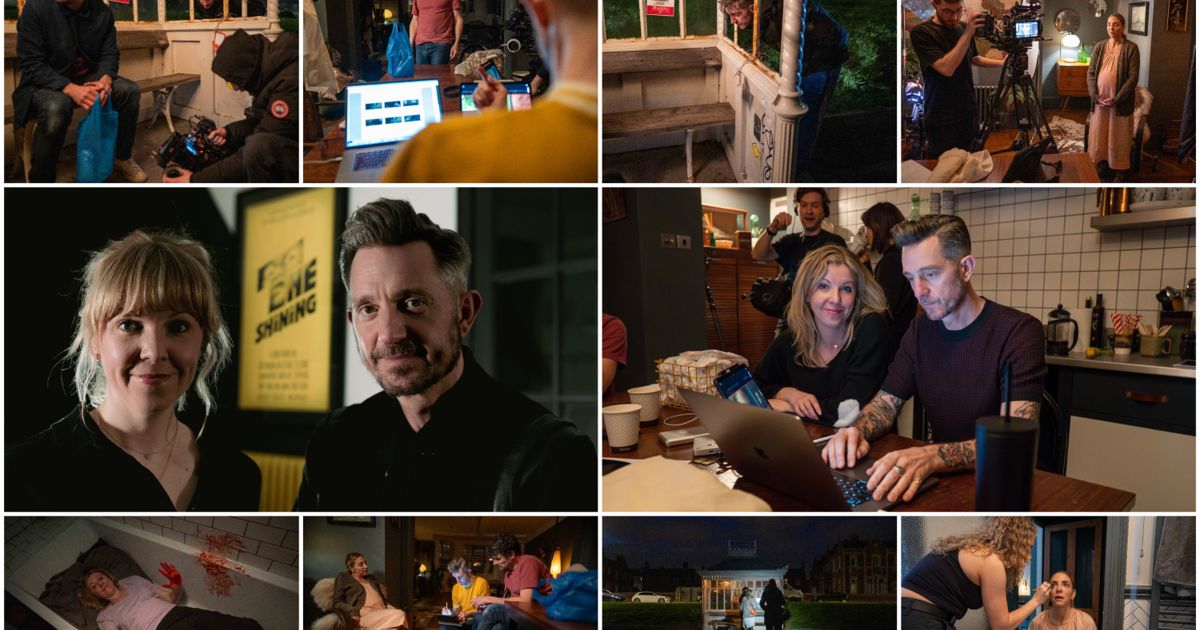How short film Aborted was brought to life
Rebecca Knighton and Lee Bamsey's newly released short film, about a world in which pregnancy can be fatal, is a chilling tale which the pair hope will help greenlight the feature script from which it is adapted.
This new short film from director/producer/writer couple Lee Bamsey and Rebecca Knighton is a short psychological thriller which the pair have adapted from their feature length script.
Aborted is a dark story of a couple who decides to risk everything to keep their unborn baby during a global ban on pregnancy.
Written during the pandemic - and mirroring some of the restrictions and fear engendered during that period - Aborted is a dark story of a couple who decides to risk everything to keep their unborn baby during a global ban on pregnancy due to a fatal virus.
Here, Bamsey and Knighton discuss how their imagined world took on a new meaning in light of the Covid pandemic, how they dealt with challenges, both personal and professional, and why they hope Aborted eventually gives birth to a feature film.
Credits
powered by
-
-
- Director Lee Bamsey
-
-
Unlock full credits and more with a Source + shots membership.
Credits
powered by
- Director Lee Bamsey
- Post Production Coffee & TV
- Sound Design Factory Studios/London
- Producer Lee Bamsey
- Executive Producer Rebecca Knighton
- DP Deon van Zyl
- Production Designer (HP) Adi Van Zyl
- Editor Ross Hallard
- Sound Recordist Joel Carr
- Executive Producer Alannah Currie
- Colorist George Neave
- VFX Luke Todd
- VFX Callum Sewell
- VFX Ben Stonehouse
- Producer Ethan Day
- Sound Designer Michael Haines
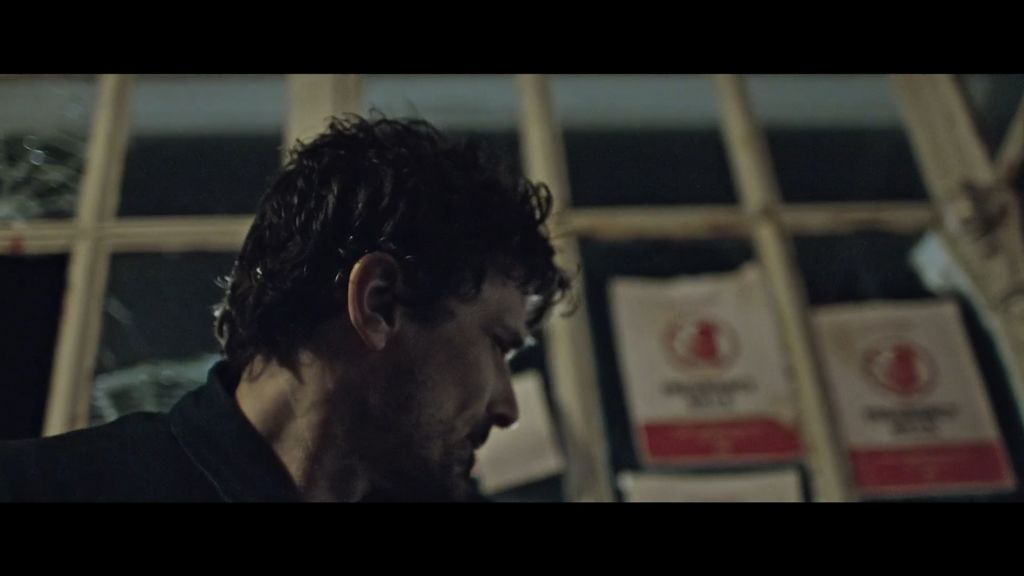
Credits
powered by
- Director Lee Bamsey
- Post Production Coffee & TV
- Sound Design Factory Studios/London
- Producer Lee Bamsey
- Executive Producer Rebecca Knighton
- DP Deon van Zyl
- Production Designer (HP) Adi Van Zyl
- Editor Ross Hallard
- Sound Recordist Joel Carr
- Executive Producer Alannah Currie
- Colorist George Neave
- VFX Luke Todd
- VFX Callum Sewell
- VFX Ben Stonehouse
- Producer Ethan Day
- Sound Designer Michael Haines
Above: Knighton and Bamsey's short film, Aborted.
What was the impetus to make Aborted?
LB: Aborted didn’t start out as a short film. The short is an adaptation of our feature script, which we made as a proof-of-concept. Rebecca and I had just completed a different feature script when we started exploring ideas for the next script and landed the idea for Aborted.
The surrealism of the pandemic and the lockdown restrictions in the UK made it quite easy to imagine a world where pregnancy was illegal.
Our initial plan was to write something that could be shot for a relatively low budget. I'd wanted to make a psychological horror film since watching horrors with my mum when I was younger. The film was written and shot during the Covid pandemic, and the concept of Aborted has an obvious correlation with that time
How influenced were you by what was happening in the real world at that time?
RK: At the time of writing, the surrealism of the pandemic and the lockdown restrictions in the UK made it quite easy to imagine a world where pregnancy was illegal. Before Covid, this idea would have been much more implausible, but seeing how quickly the world changed, the suspension of disbelief was already there.
When you are told that you can only go out for exercise once a day, or can't visit loved ones in the hospital, and your TV is taken over by news footage of infection rates, the world of Aborted felt like it could be real. It had instant credibility after what we had all just been through. And then, just as we finished the script, the Roe v Wade crisis happened in America, and suddenly, a film about mandatory abortions to save lives felt incredibly prescient.
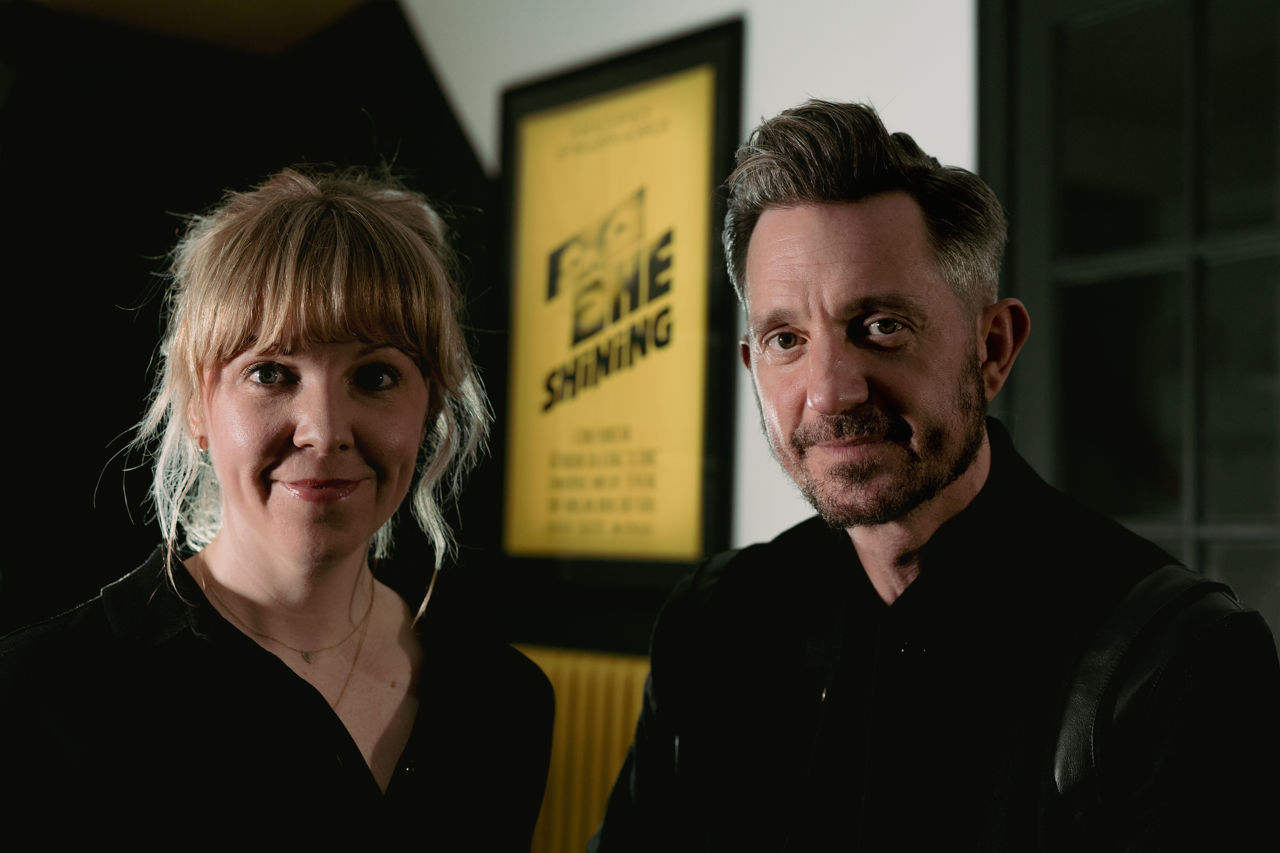
Above: Rebecca Knighton and Lee Bamsey.
Had you shot a short film before, and what were your expectations before starting out?
LB: I've directed music videos, commercials, fashion films and online content, but this is my first short. As with all films, the performances of the actors and delivery of their dialogue is crucial, and we didn't have any rehearsal time before the shoot. I hadn't even met Clara, the female lead.
We intentionally featured no other characters as we wanted to create a bleak, dystopian world.
I have a lot of experience in leading jobs from concept to completion, so was confident that I could run with it from day one. I'm very hands on, so was heavily involved in all areas, from writing, storyboarding, producing, directing, editing and feeding back to the brilliant VFX team at Coffee & TV, and the sound effects team at Factory. Together, we had a very strong idea and belief in the project.
RK: We wanted to create an authentic, isolated world that belonged to the narrative. Part of our vision was for it to be set at night. We achieved this by blacking out all the windows in the apartment to maximise shooting time for the interior scenes. We intentionally featured no other characters as we wanted to create a bleak, dystopian world.
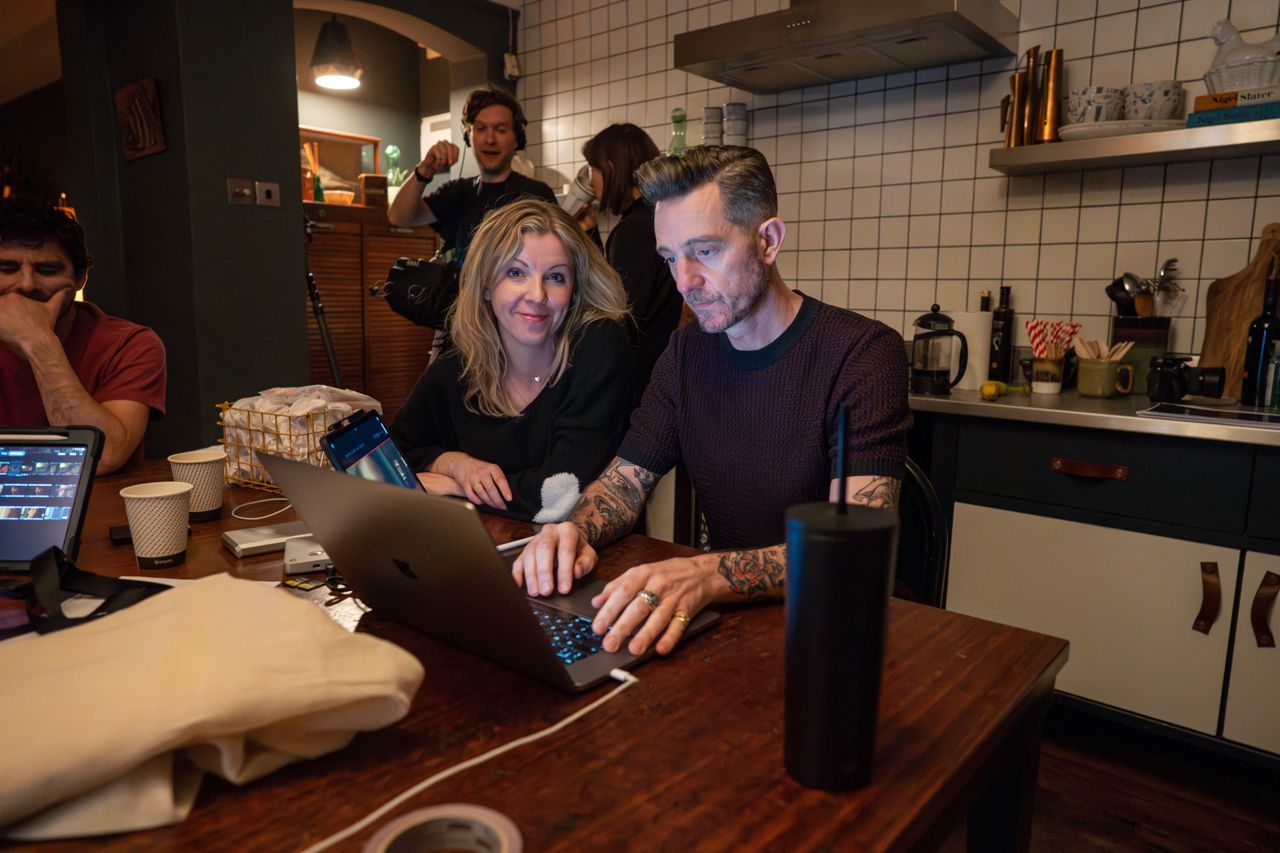
Above: Knighton and Bamsey on location for the shooting of Aborted.
Why did you feel that making a short film was a good step towards making a feature and which - if any - shorts did you look to for inspiration?
LB: After finishing the feature script, we had the idea of shooting a scene for a style and tone reference to accompany the script to help get funding. We began to break down the feature script, but it quickly snowballed into an adaption of the feature, so it was a more solid story which would make for a stronger proof-of-concept.
[There are] great examples of how shorts made before features can have a big impact without giving everything away.
We learnt a lot from making the short, which will feed into the feature. There is always room for improvement and I would choose to do some things differently if I were to revisit the short, but time and budget constraints were not on our side.
RK: Lee and I did a lot of research on horror directors that we admired, like Ari Aster, and started to watch some shorts. We both loved Natalie Erika's short Creswick that she made before Relic and Jennifer Kent's Monster, which inspired The Babadook. These are both great examples of how shorts made before features can have a big impact without giving everything away. We were a bit concerned about revealing the twist in our film, and how a short could impact the feature, but we included a modified version.
LB: Trudie Styler invested in Lock Stock after seeing Guy Ritchie's short The Hard Case. I had been aware for a very long time that this was a proven method to get a feature made, and knew that it was the right path for us.
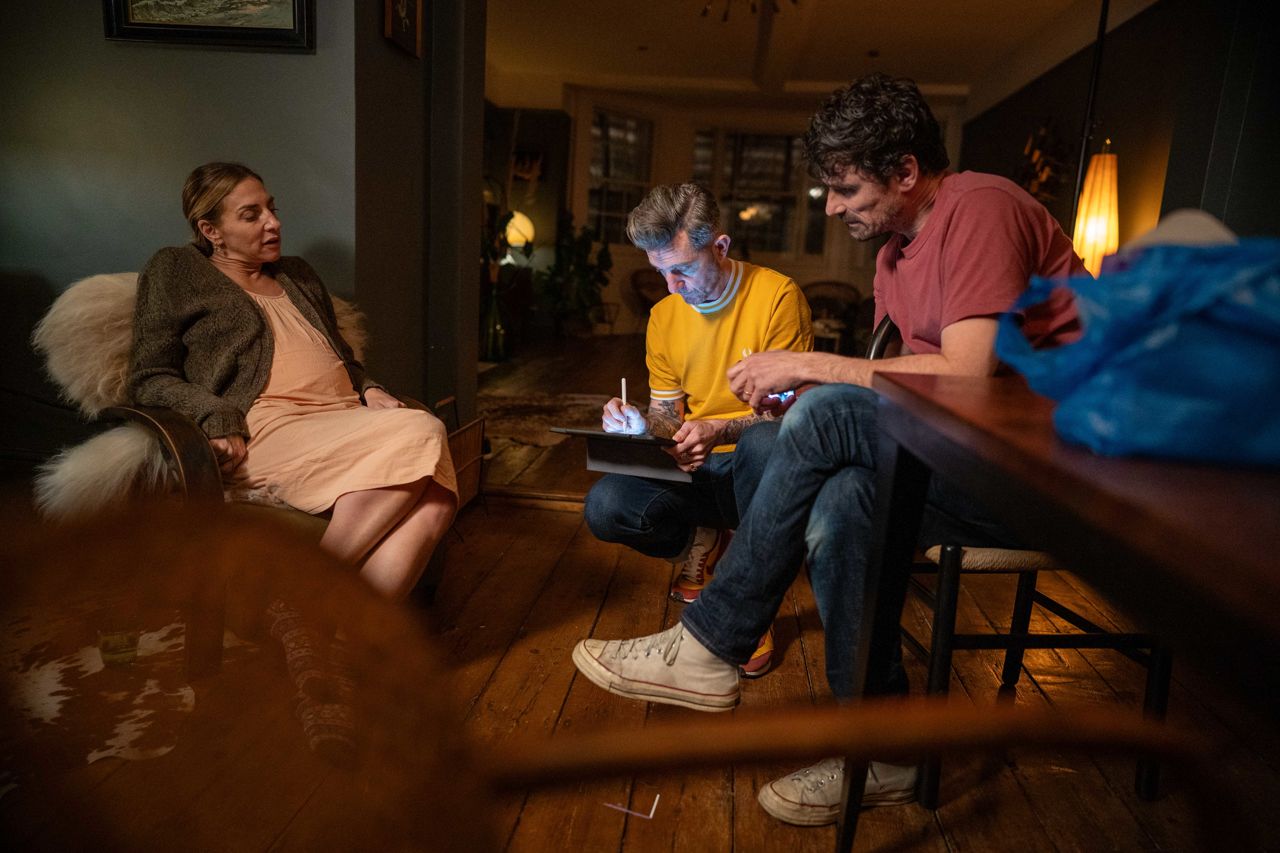
Above: Actors Dan Rabin [right] and Clara Francis [left], with Lee Bamsey.
Can you tell us about the two cast members and how you found them?
RK: Dan Rabin, who plays Ben, is a neighbour, and we became friends during the pandemic. He was onboard after we told him about the idea for the film, which was then solidified by reading the script. We needed a female lead and we had the idea to reach out to Clara Francis on Instagram. Just before I sent her a message, I looked at Clara’s page and came across a photo of Dan. It turned out Dan and Clara had known each other for a long time.
I'm a big believer in 'luck is who you know', and Lee and I have a running joke about it.
Dan called Clara and she agreed to play Miriam. We couldn't believe it. I'm a big believer in 'luck is who you know', and Lee and I have a running joke about it. Everyone involved in Aborted is through someone we know and we are incredibly lucky with the people who signed up for this project. It felt like it was meant to happen. Fate.
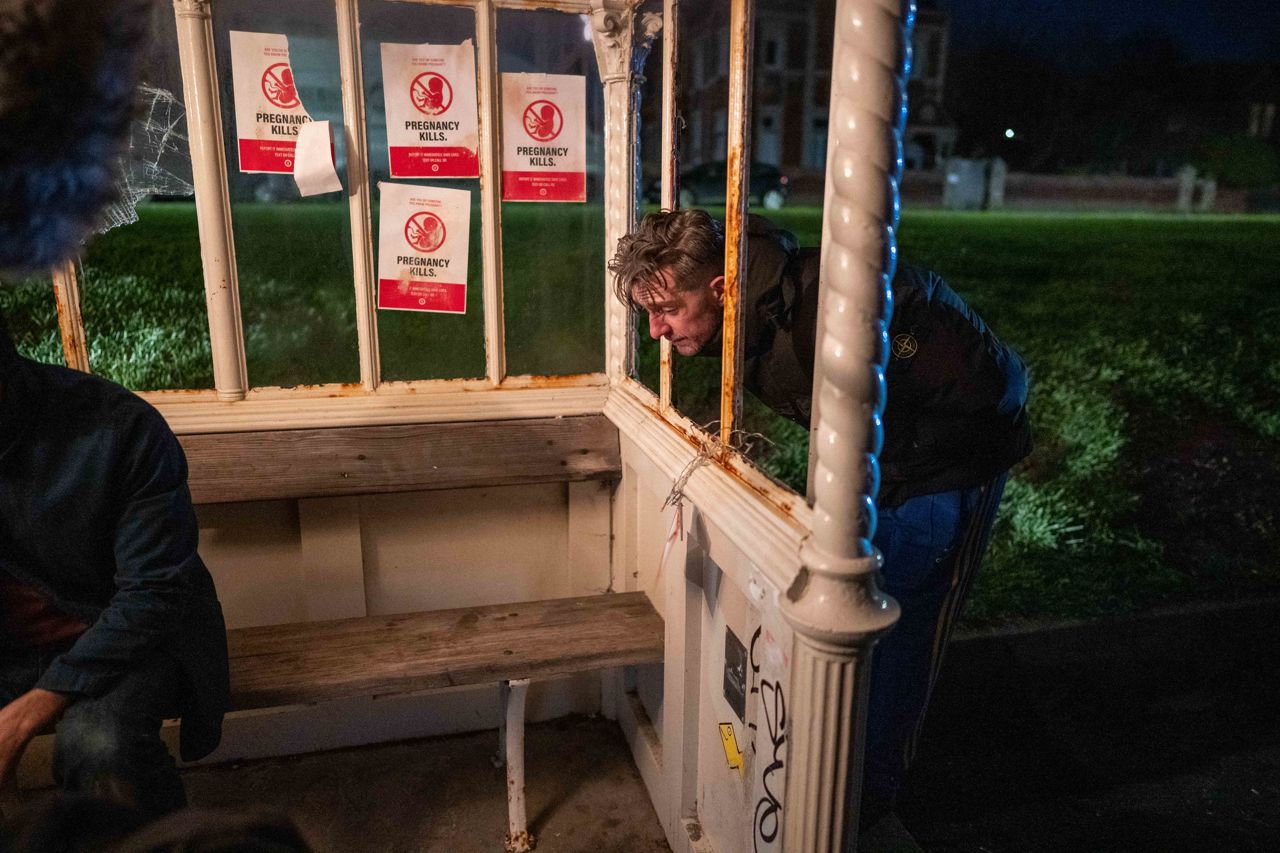
Above: Bamsey on location.
Your planned DoP dropped out just before shooting; how difficult was that, and were you worried the project would fall apart?
LB: It was devastating news, and incredibly stressful as everything was scheduled; the crew was arranged, the location was paid for. We couldn’t reschedule again as we were funding it ourselves. We contacted DoPs through various avenues, and then Ross Hallard, an old friend of mine, put us in contact with Deon Van Zyl and we were blown away by his reel.
It was devastating news, and incredibly stressful as everything was scheduled.
Deon read the script and treatment and agreed to shoot the film with two days' notice. His wife, Adi, came along and did the production design. Both are very talented, and Aborted looks so great, in large part due to their involvement. Once again, fate took its course. It was never an option not to go ahead with the shoot. At one point I was considering doing the camerawork myself if there were no other alternatives.
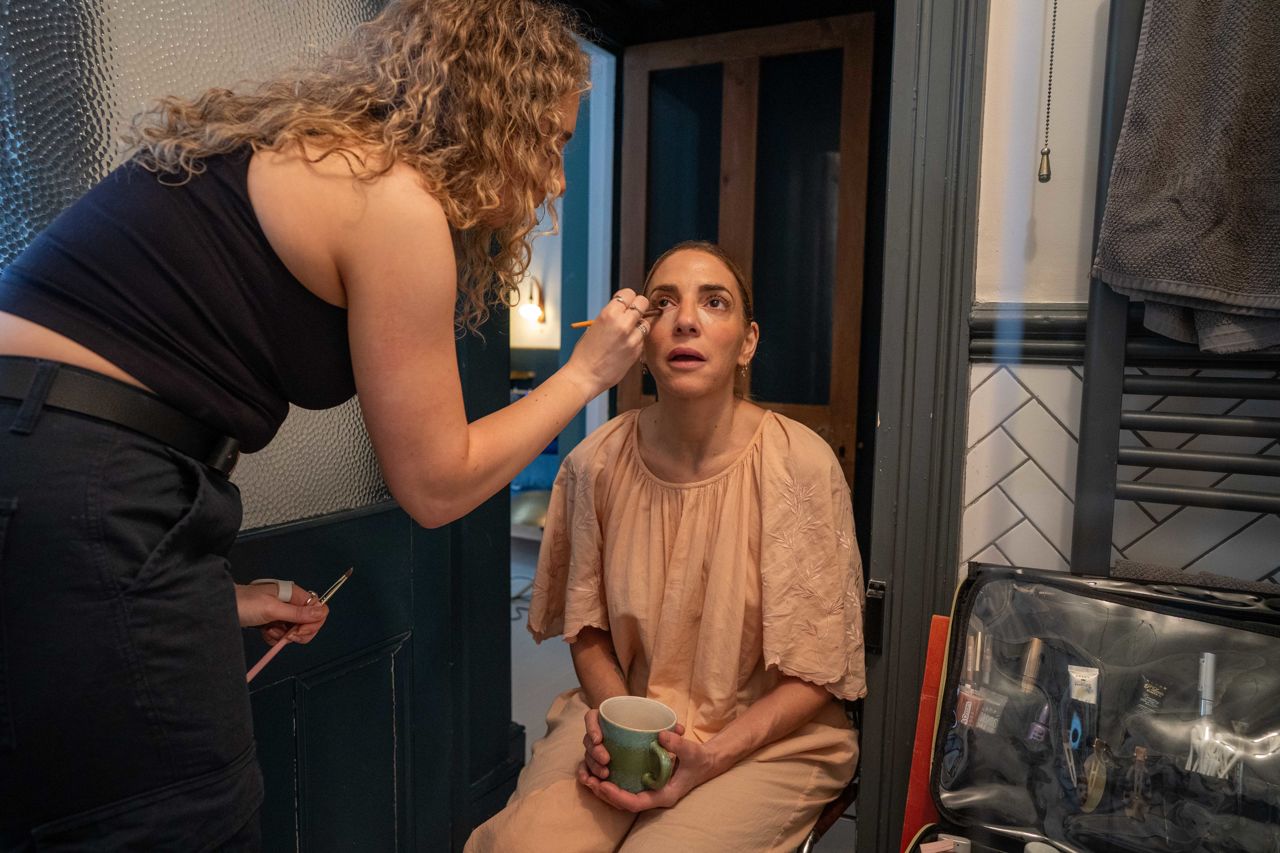
Above: Clara Francis in make-up, preparing to shoot.
Like the concept itself, the sound design in the film is intense and suffocating; did you know what you wanted from the sound design from the start?
LB: Absolutely. The sound is equally as important as the picture. Before handing it to Factory and briefing it in, we locked the offline down with a placeholder soundscape for reference, which was done by Ross Hallard, the editor, and myself.
The sound is equally as important as the picture.
The brilliant Saint Maud, by Rose Glass, was a huge influence. [Sound designer] Michael Haines understood the brief perfectly and worked tirelessly to create the music and sound design from scratch.
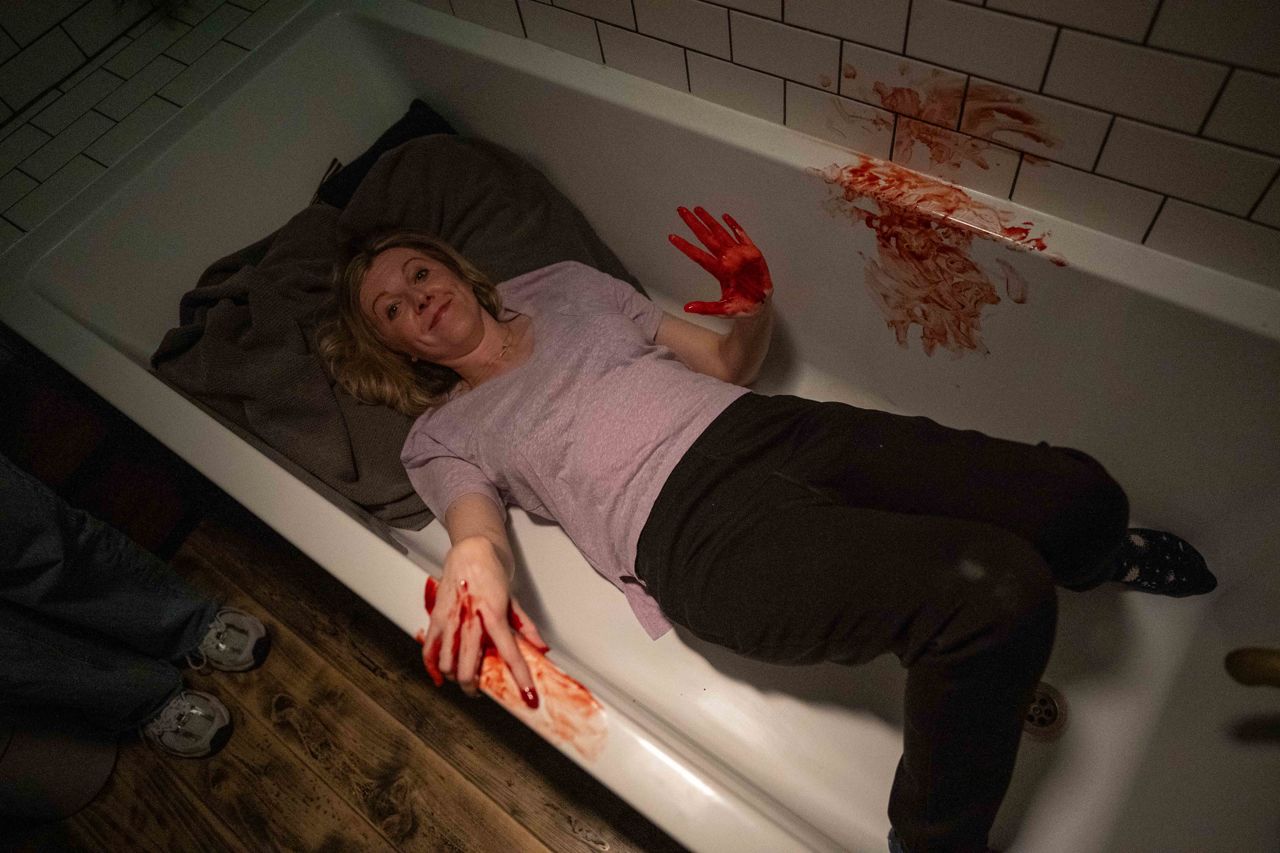
Above: Knighton's bloody bath.
What was the most creatively challenging aspect of this project?
RK: Lee and I are an amazing creative (and life) partnership. We love nothing more than making a mezcal Manhattan on a Saturday night and sitting down to work on a script together. It's just fun and buzzy and we're incredibly fortunate to be in this position. I have never been so creatively fulfilled than writing films with Lee. We bounce off each other constantly and test ideas.
In terms of a creative challenge, the biggest one for us on Aborted was adapting 90 pages into a short script. Our feature script has an incredible amount of depth, and there are elements of shocking horror that we knew we didn't have the budget for. We wanted to include so much, but once we identified the core story we wanted to tell, we stuck to that and tried to keep it simple. After a while, what initially felt like limitations disappeared, and we worked on making it as punchy and impactful as possible.
It was an extremely difficult and emotional period, but we carried on, dedicating the short to his memory.
LB: We both work full-time, so we spent our nights and weekends writing the script and prepping for the shoot. We intended to initially shoot in January of 2022, but we had to postpone due to Omicron. We had to reschedule everyone and everything involved, so we were under a lot of pressure as it was self-funded.
Then, my dad became severely ill and was in hospital for seven weeks as we were trying to reschedule. He passed away one month before the shoot. He wouldn't have wanted us to cancel and we continued with the shoot to honour him. It was an extremely difficult and emotional period, but we carried on, dedicating the short to his memory.
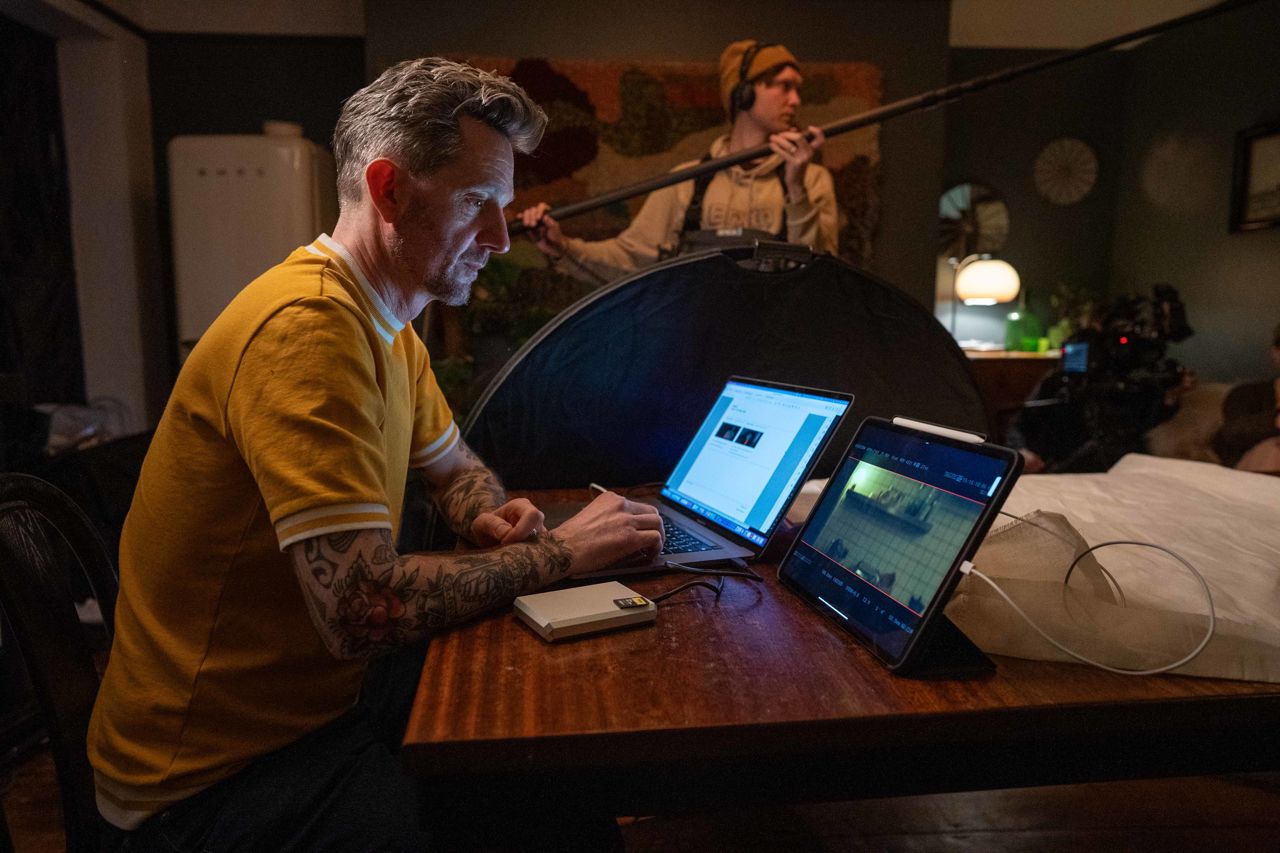
Above: Bamsey overseeing the shoot.
Which festivals has Aborted been entered into, and are you pleased with the response it got?
LB: We are very pleased with the eight festivals Aborted has been accepted into, and we're still waiting to hear from some. We focused on indie festivals, and those dealing with diversity, feminism and equality. But the film was always made to be a proof-of-concept, so getting into festivals is an added bonus.
Can you tell us how the feature is progressing?
LB: We're at a great stage of development. The script is tight and we've worked up an accompanying look book. We are now looking for a film producer that falls in love with our story and wants to help get the feature made, so they can join us on the next chapter.
We are now looking for a film producer that falls in love with our story and wants to help get the feature made.
RK: The world of Aborted has so much more to offer than what we were able to capture in the short. The strikes in 2023 made pitching new projects tricky, but we are so excited to find the right partnership to help us move to the next stage.
)
